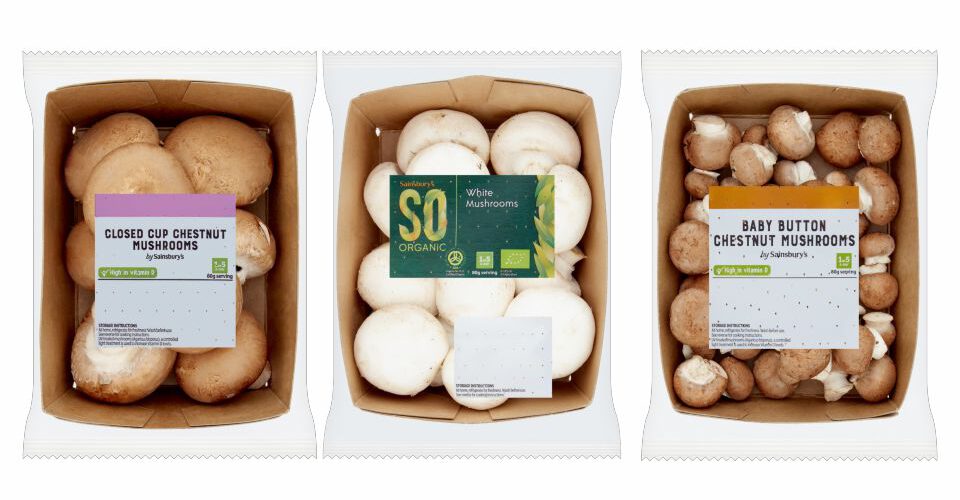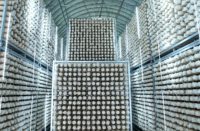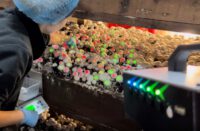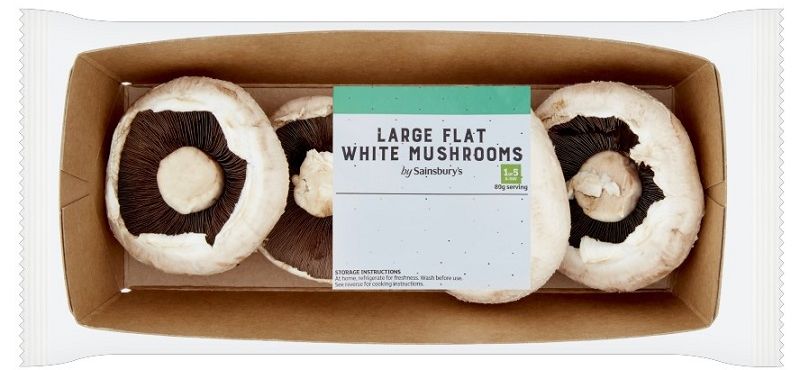Sainsbury’s is making a significant environmental move by transitioning to cardboard packaging for its own-brand mushroom products. A change that is expected to eliminate the use of over 775 tonnes of plastic each year. This reduction is equivalent to the weight of 43 fully loaded London double-decker buses, marking the largest-ever single-use plastics removal initiative in the company’s history.
What products are involved?
The transition to cardboard trays will be implemented across all 13 own-brand mushroom varieties. Including whole baby button, closed cup, organic, and chestnut mushrooms, by the end of the current month. Sainsbury’s emphasizes that this shift not only facilitates recycling for customers. It also contributes to a more sustainable future by reducing plastic usage.
Two of the retailer’s private-label mushroom brands, by Sainsbury’s and SO Organic, have already completed the switch to cardboard packaging, while the Taste the Difference range is expected to complete the transition by the end of January.
In line with company objectives
Claire Hughes, the director of product and innovation at Sainsbury’s, emphasized the collaborative effort with suppliers. The aim is to increase recycled content and recyclability in alignment with the company’s commitment to a healthier and more sustainable future. The initiative is part of ongoing efforts by Sainsbury’s to innovate packaging and replace plastic where possible.
A not unprecedented move
In addition to the mushroom packaging, Sainsbury’s has taken other steps to reduce plastic usage. Sainsbury’s reduced plastic in toilet and kitchen roll, saving 485 tonnes yearly. Previous initiatives include the elimination of plastic trays from tomatoes in 2020, saving about 75, and from asparagus in 2019, saving around 32 tonnes of plastic annually.
The mushroom industry has a long way to go to become truly environmentally sustainable. There are already excellent examples, but the Sainsbury’s decision is an excellent example for the mushroom sector.
Source: Sainsbury’s













